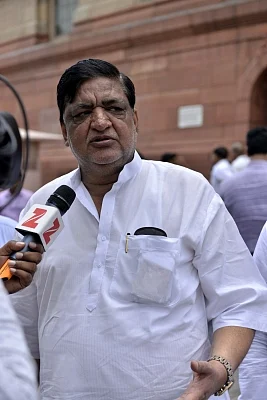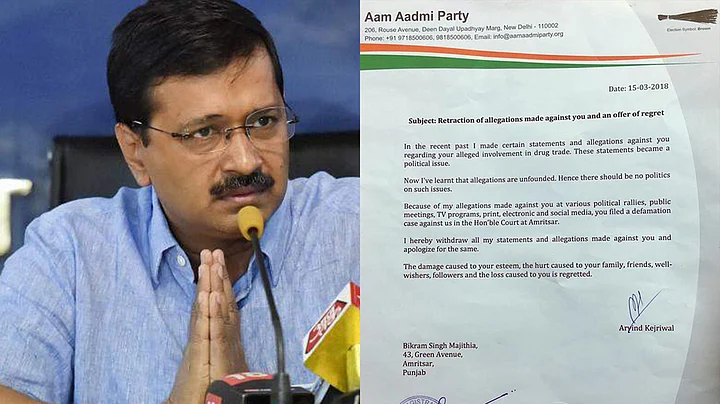Chief Minister of Delhi, Arvind Kejriwal, last week, set the corridors of power and media aflutter when he apologised to Bikram Singh Majithia, former cabinet minister of the Punjab Government, for levelling ‘unfounded’ allegations against him of being involved in the drug trade and effectively ended the defamation case that Majithia had filed against Kejriwal in the aftermath of said allegations. This week saw similar apologies to Union Minister Nitin Gadkari and Congress leader Kapil Sibal, thus putting an end to two more defamation cases against Kejriwal.
Predictably, with clockwork efficiency, the often rabid cabal of an ill-informed political opposition, blustery 24x7 media and drawing room political pundits rushed to write the epitaph of Kejriwal and his party — yet again. “It is the end of the peoples’ revolution,” they said. “The ultimate besmirchment of Kejriwal’s reputation,” they said.
Word to the wise: the above reactions, from across the smorgasbord of spectrum, betray a serious lack of understanding of the basic issues at play.
What Does It Mean to Apologise in Indian Politics?
Clearly, saying sorry is still one of the most hair-raising acts that our politicians perform. Apologies are completely conspicuous by their absence in the political sphere of India. Prime ministers, chief ministers, cabinet ministers or even lowly political actors are deeply reluctant to offer real apologies for any wrongful acts of commission and omission.
Instead what passes for a political apology is a skilful exercise in evasiveness and vagueness, predicated with sentences of the ilk – I apologize “if” someone is offended by my statements – with “if” being the operative word and making the whole fiasco a case of verbal ju-jitsu, a politician’s dodge if you may, subtly shifting the blame on the person who is offended.
Case in point, two recent instances — one where an apology was extended, the other where it wasn’t:
1. When BJP’s newly inducted member and former Samajwadi Party loyalist Naresh Agrawal called Jaya Bachchan a ‘nachney wali’. He amused no one with his utterance which harked back to the dark days of Victorian repression and misogyny. A reluctant ‘apology’ came forth, phrased: “My intention was not to hurt anybody’s sentiments. I regret if my comment has hurt somebody’s feelings and withdraw my words.” Don’t miss the ‘if’ and the general vagueness of what can only be termed as an apology of an apology.

2. When, the present dispensation at the Centre, in 2017, celebrated (with much boisterousness) the first anniversary of its largely inefficacious demonetisation exercise, it failed to accept not only the deaths of over a hundred people as a fallout of demonetisation, but even forgot to spare a thought for the gargantuan difficulties that people faced by way of loss of subsistence and livelihood due to the exercise. An apology, even if a perfunctory note of compassion, was vital and sadly missing.
Why did Kejriwal Apologise?
Kejriwal’s apology stems from a case of tactical political prudence.
Kejriwal has been levied with over 20 defamation cases by his political opponents, most in different parts of the country, and requiring personal appearances.
Clearly the stratagem is to trap him in a political cul-de-sac where he spends most of his time wrangling with legal cases at the cost of his duty as the elected chief minister of Delhi. And his political opponents used a very convenient legal tool at their disposal: that of defamation.

The law of defamation, which is said to have been born in the 130 AD, and was intended to protect people's reputations from calumnious attacks has instead, over the ages, devolved into a tool meant to hamper free speech and protect the interests of powerful people. History has shown that defamation doesn't actually work to protect reputations. Instead, it prevents the dialogue and debate necessary to seek the truth. The usual characteristics of defamation cases are:
1. Costs: Defamation cases can go on for years. Then judgements can easily be appealed leading to a ballooning of the legal costs. Only those with deep pockets can pursue such cases resulting in the fact that defamation is used by the rich and powerful to thwart criticism.
2. Irrationality: Commonly, people utter and write libellous stuff all the time. However, only a select few are ever slapped with defamation. Clearly, defamation is more often than not used as a tool to settle scores than to reverse any reasonable damage to one’s reputation.
3. Slowness: Defamation cases are usually registered after a considerable period of time has passed since the offending statement and can take years to an end to resolve.
It is then only fit that Kejriwal decided to end defamation cases against him by apologising to the offended parties, in order to dedicate and devote more of his time to where he is needed by the people who elected him to office and in expanding the footprint of AAP across India.
The notion that politicians should not apologise is as befuddling as the notion that real men don’t cry. Even most of the religions tell us that contrition is a trait of strength and not weakness — self-humbling and disarming.
Great military strategist Sun Tzu had once remarked: “The enlightened ruler is heedful and full of caution”. And that is what Kejriwal has done, instead of falling headlong into the bully arena set up for him by his political opponents.
(Pranav Jain works with the AAP and Delhi Government on key issues. He can be reached on Twitter at @pranavj142. This is an opinion piece and the views expressed above are the author’s own. The Quint neither endorses nor is responsible for the same.)
(At The Quint, we question everything. Play an active role in shaping our journalism by becoming a member today.)



